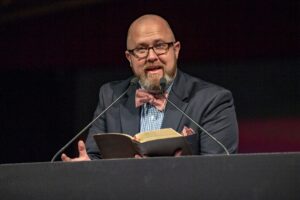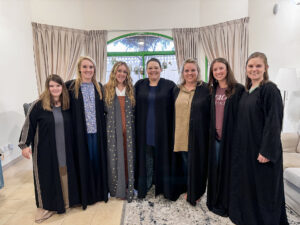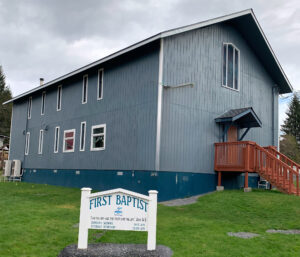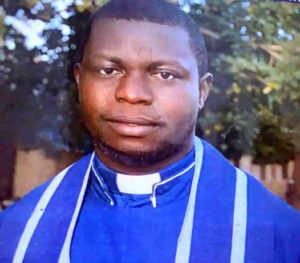
EDITOR’S NOTE: February is Black History Month and Sunday, Feb. 10, is Racial Reconciliation Sunday in the Southern Baptist Convention.
LOUISVILLE, Ky. (BP) — Slavery and racism once supported by the Southern Baptist Convention’s oldest seminary needed to be documented for history’s sake, black alumni and a representative of nearly 4,000 black pastors told Baptist Press.
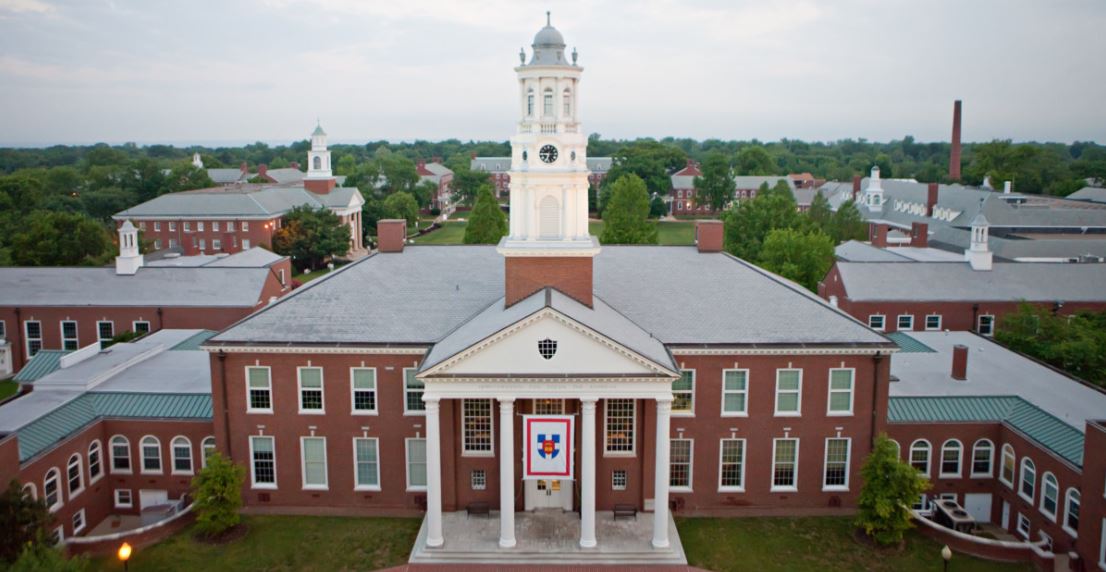
“Dr. Mohler’s commissioning the study and releasing the internal report on the history of slavery and racism at the Southern Baptist Theological Seminary is clear leadership akin to the men of Issachar,” said Marshal Ausberry, president of the National African American Fellowship of the SBC, referencing 1 Chronicles 12:32. “Dr. Mohler clearly understands the times and knows what to do!”
Southern Baptist executives Kevin Smith, Ken Weathersby and Curtis Woods, all SBTS alumni, also praised the report, clarified its purpose and shared future hopes. Smith and Woods both teach SBTS courses while serving in leadership capacities at state conventions, and Woods served on the committee appointed to research and compile the report.
“The goal of the report was historical truth-telling. We knew the report would potentially produce lamentation and laudation in the hearts of various readers,” said Woods, co-interim executive director of the Kentucky Baptist Convention, and an SBTS assistant professor of applied theology and biblical spirituality.
A proclaimed righteousness of slaveholding and efforts to preserve it, support for the Confederacy, opposition to racial equality after the Civil War, and the restoration of Southern white rule after the war were all causes of the seminary’s founders, the report points out. Juxtaposed to professed Christianity and Gospel proclamation, 19th and 20th Century faculty and administrators taught white supremacy and segregation.
“The history of the seminary is like an antibiotic and a vaccine,” said Ausberry, pastor of Antioch Baptist Church in Fairfax Station, Va. “As an antibiotic it kills the lingering infection of racism and as a vaccine, kills a recurrence of the disease!”
The Gospel is greater than historical accuracy in moving beyond wrongs committed, those interviewed told BP of the document released in December, 2018 as a “Report on Slavery and Racism in the History of the Southern Baptist Theological Seminary.”
“I’m not certain a written document by fallible men will be stronger than the inerrant and infallible Word of God to increase ethnic diversity within SBC life,” Woods said. “C. Eric Lincoln correctly stated, ‘A man convinced against his will is of the same opinion still.’ In context, Lincoln’s aphorism means if the mind is not renewed, the report will be eschewed.”
Jesus Christ is our reconciler, Ausberry said.
“We reconcile to each other because that is the picture of Christ reconciling a sinful world to Himself,” is how Ausberry put it. “Southern Baptists have a golden opportunity to show the world how we can make peace with our past, and truly love one another, because the love of Jesus Christ binds us together.”
SBTS is well known today for theological and academic integrity, and is one of the largest seminaries in the nation, said Weathersby, SBC Executive Committee vice president for convention advancement.
“It is paramount not to allow your past failures to prevent you from moving forward in reaching the goal in producing leaders who reflect the character of Jesus Christ,” Weathersby said. “The outcome of knowing the purpose and the core values of your institution will allow you to make the necessary corrections in training leaders and creating an environment for diversity in every level of the school.”
Smith, executive director of the Baptist Convention of Maryland/Delaware, said the report is not surprising because Mohler values historical study. The report is an analysis of primary sources, said Smith, who teaches an SBTS summer intensive course as assistant professor of Christian preaching.
“It’s very significant that readers understand what type of document this is — historiographical, not political or ethical,” Smith said. “Also, it’s important to know that the audience is Southern Baptists, that we might know more about our flagship seminary.”
The report’s informational value to those previously unfamiliar with this part of SBTS history, and its documentation of the times for those who were already familiar with the period are both positives, Smith said.
Other institutions including Princeton and Georgetown universities, Woods said, led the way in unearthing past institutional commitments to black exploitation which created an economic advantage for educating Anglo-Americans. For instance, Jesuit priests who ran Georgetown University sold about 300 slaves to Southern plantation owners in the 19th Century to keep the school afloat, history records.
“SBTS performed its research because President Mohler rightly believed that a holistic understanding of the Gospel gives Christians the appropriate categories to deal with past sins,” Woods said. “I, as an African-American faculty member, was elated to join the committee at the chairman’s request.”
Widespread opinions from secular and Christian communities followed the report’s release.
“A good research project requires the author to propose a thesis with delimitations. Our committee fulfilled the report’s purpose. We gave a considerable amount of thought to our conclusion,” Woods told BP. “As it relates to including additional scenarios to the story, SBTS invites budding scholars to take up the investigative mantle in our research doctoral program rather than wasting precious brain cells through social media diatribes.”




